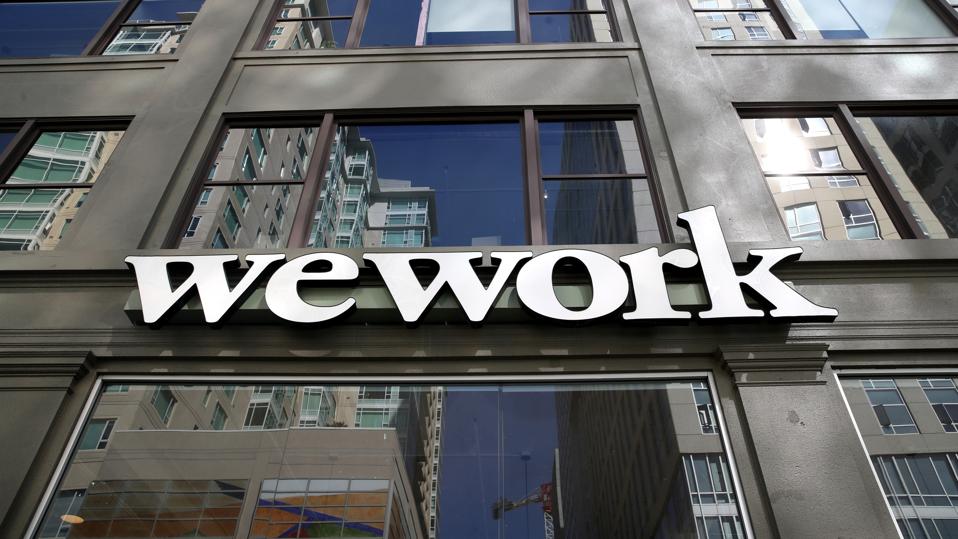Shares of WeWork, the struggling company that once pioneered the co-working office space movement, collapsed more than 50% on Wednesday after news reports revealed the company was planning to file for bankruptcy as soon as next week.

A sign is photographed on the exterior of a WeWork office on October 07, 2019 in San Francisco, California. (Photo by Justin Sullivan/Getty Images)
Getty Images
Key Takeaways
- Wednesday’s share price is a record low for the company, which was once a Wall Street favorite valued at around $47 billion.
- WeWork’s share price slumped to around $1.12 just after 2 p.m. Wednesday afternoon, putting the company’s market capitalization at about $59 million—less than 0.13% of what it was worth at its peak in 2019.
- This comes after the Wall Street Journal, citing anonymous sources with knowledge of the matter, first reported Tuesday that the company was planning to file for bankruptcy as soon as next week.
- WeWork reportedly missed interest payments it owed its bondholders on October 2, which meant it had until the end of a 30-day grace period to make the payments or go into default, according to the Journal (However, on Tuesday, WeWork and its bondholders struck a deal to give WeWork another seven to negotiate before a default is triggered).
- Forbes has reached out to WeWork for comment, and has not yet heard back.
Tangent
Tuesday’s bankruptcy revelation wasn’t the first sign of trouble for WeWork. In August, the company released a statement acknowledging there was “substantial doubt” it will be able to stay in business, citing a “slight decline in memberships” and “increasing competition.” The company blamed the real estate market, which has seen an increase in supply, giving consumers more options. For the six months ending in June, the company reported a net loss of $696 million. Additionally, the company saw turmoil on its board of directors in August when three directors resigned over a disagreement regarding governance and strategic direction, according to a securities filing.
Key Background
WeWork’s fall from grace has been ongoing for years. It became the sixth-most-valuable startup in the world in 2017, and in just three months from July to September 2017, it raised $4.4 billion, according to Business Insider. By January 2019, it peaked with a valuation of $47 billion. However, the Covid-19 pandemic, which emptied its shared offices in spring 2020, and a difficult real estate market hurt the company’s bottom line and it never fully recovered.
This article was first published on forbes.com and all figures are in USD.


